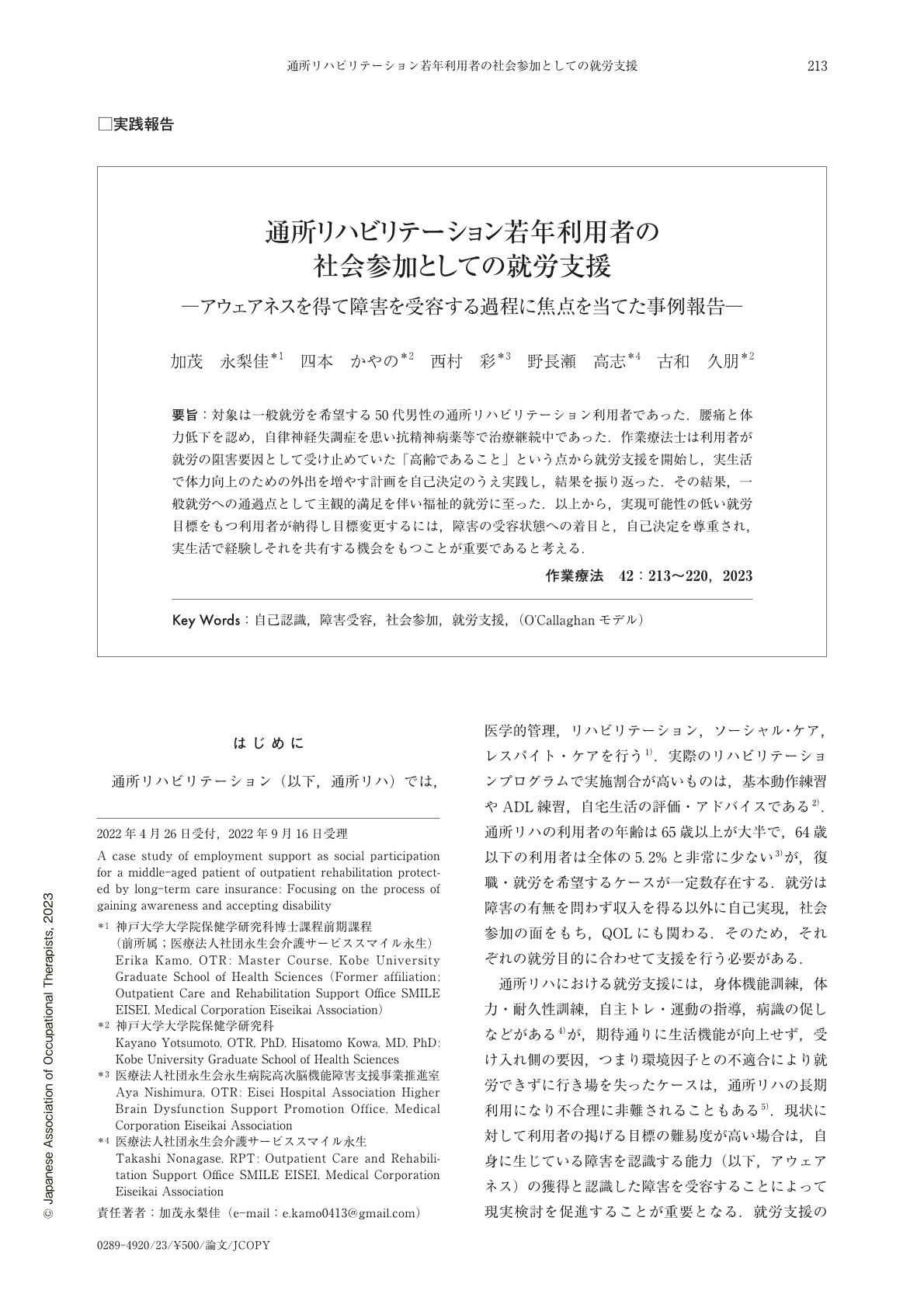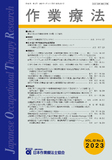Japanese
English
- 販売していません
- Abstract 文献概要
- 1ページ目 Look Inside
- 参考文献 Reference
- サイト内被引用 Cited by
要旨:対象は一般就労を希望する50代男性の通所リハビリテーション利用者であった.腰痛と体力低下を認め,自律神経失調症を患い抗精神病薬等で治療継続中であった.作業療法士は利用者が就労の阻害要因として受け止めていた「高齢であること」という点から就労支援を開始し,実生活で体力向上のための外出を増やす計画を自己決定のうえ実践し,結果を振り返った.その結果,一般就労への通過点として主観的満足を伴い福祉的就労に至った.以上から,実現可能性の低い就労目標をもつ利用者が納得し目標変更するには,障害の受容状態への着目と,自己決定を尊重され,実生活で経験しそれを共有する機会をもつことが重要であると考える.
The case was a male patient in his 50s using outpatient rehabilitation with long-term care insurance who sought competitive employment. He suffered from lower back pain, poor physical fitness, and autonomic imbalance and had been treated with antipsychotic drugs. He was initially reluctant to work in the disability quota. Several interventions were started from the point of being old, which the patient had accepted as a disincentive to employment. In addition, the occupational therapist implemented a plan to increase outings to improve real life physical fitness based on self-determination and reviewed the results. As a result, the client started to work under welfare employment with subjective satisfaction as a passage to competitive employment. This case identifies three important aspects for a patient with low feasibility employment goals to be convinced and to change their goals: a focus on accepting the state of disability, respect for self-determination, and the opportunity to experience and reflect on real-life.

Copyright © 2023, Japanese Association of Occupational Therapists. All rights reserved.


